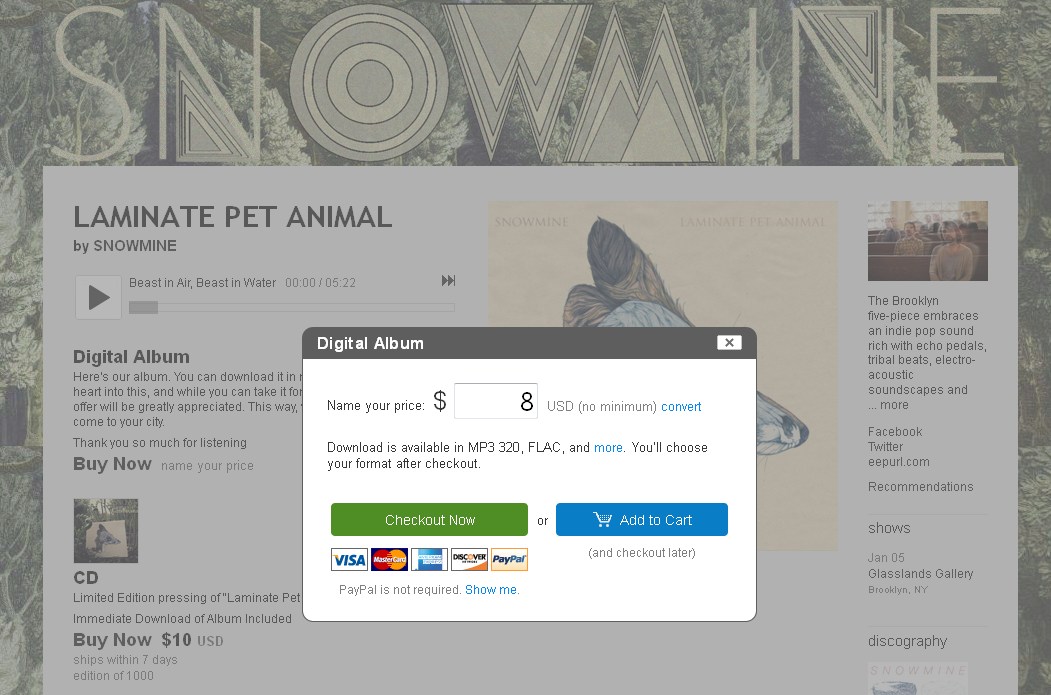The question of how music will be distributed in a year, five years, or ten years, is an open one. The landscape has been altered so drastically over the last ten years that the only thing that seems sure is that major changes will continue to come.
Bandcamp hopes to be part of those changes, and they’re showing healthy growth: the site pulled in a million dollars in sales just in December. Not, of course, much of a challenge to the sudden empire of iTunes and the inverted economics of streaming services of Spotify — but the Bandcamp approach to the distribution question is building legitimacy.
The post commemorating this one million in one month mark also has some interesting stats. They started tracking referrers and found that quite a few people were actually coming to Bandcamp after searching for a way to pirate an artist’s music. Bandcamp popped up in the search results, they followed the link, and ended up paying for the music instead of pirating it.
Gabe Newell of Valve has said that piracy is a failure of service. In the case of someone searching for and finding a torrent or zip of an artist’s music, the failure is a failure to interject with a legitimate option. It’s helpful that Bandcamp offers torrent and FLAC downloads, as these tend to snag pirates looking for those very things. Legitimate services need to cater to pirates not because they must lower themselves to the level of criminals, but because that is the price of failing to address the needs of users.
Someone wants to download some tracks by an artist. They search, and one above the other are results from a torrent site, and the official site — perhaps on Bandcamp, perhaps with a pay-what-you-like deal. Hardened indeed must be the pirate who won’t even pay a buck to support the artist. And at that point the legitimate distributor has done what they can, and although it was a lost sale, it was also an extra opportunity. Making your product available when your customer wants it, and for a price they are willing to pay, are necessary and often sufficient for a sale.
Google can help here, though Bandcamp and others need to help themselves on discoverability as well. Bandcamp works as the de facto distribution stream for a number of artists, and as it grows in legitimacy it can be made more reliably part of the curated search results. There’s no reason why Google shouldn’t detect the “Sufjan Stevens” part of a “Sufjan Stevens album torrent free” search and provide some relevant information — not sponsored, mind you, just relevant — like the official fan page, Facebook page, and Bandcamp page.
Of course, even the current situation is in flux. Independent payment systems like Dwolla and Square might spell doom for the likes of Bandcamp, though they are not strictly in the same business. But the two (that is, specialized payment and distribution networks, and spot transaction processors) are as likely to complement each other as they are to clash. The media distribution engines of the last 10 years, indeed the last 50, are leaving a large vacuum behind them. Think of the vacuum that will be left by Paypal and Visa.

